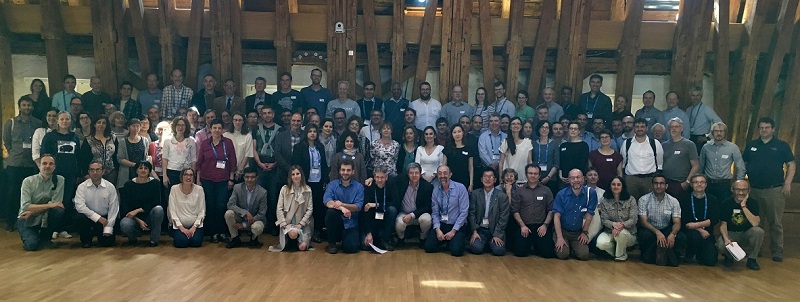IAHS News
Report from Vienna Catchment Science Symposium, Saturday 14th April, 2018
On the Theme of: 23 unsolved problems in Hydrology that would revolutionise research in the 21st century
Report
We had excellent meetings on Friday 13 April 2018 (Splinter meeting at EGU in Vienna) and on Saturday 14 April (Vienna Catchment Symposium at TU Wien) with about 60 and 110 people attending, respectively.These are the questions resulting from the LinkedIn discussion, the Friday Splinter meeting and additional email contributions received before Friday.
https://iahs.info/uploads/Unsolved%20Problems%20in%20Hydrology/Questions_13_April_2018_edited1613.pdf
On Saturday we had three rounds of discussions in four break out groups and one final plenary discussion. In each round we discussed the questions, merged them, split them and reworded them as needed followed by a voting on prioritising the questions. The voting was for gold/silver/bronze/remove in each of the three break out group rounds. Only the gold and silver ones were retained for the plenary with an additional round of voting (by the entire plenary) for gold, silver or removing them from the list. The idea of the process was to whittle down the 260 questions initially proposed to a more coherent and smaller set of those questions deemed most important by the participants. The process resulted in 16 gold and 29 silver questions which are posted here.
https://iahs.info/uploads/Unsolved%20Problems%20in%20Hydrology/Questions_14_April_2018_plenary.pdf
A paper drafting team (Günter Blöschl, Elena Toth, Jeff McDonnell, Gia Destouni, Antonio Chambel, Elena Volpi, Jim Kirchner, Marc Bierkens, Christine Stumpp, Christophe Cudennec, Hubert Savenije, Siva Sivapalan, Aldo Fiori) has been formed to
- check whether there are any obvious ‘holes’ in the list and propose a small number of additional questions if needed
- wordsmith the questions
- start with an initial draft of the summary paper.
The updated list of questions will be circulated among the co-authors (those who have substantially contributed to the process which will be around 160 scientists) with a final voting on the list, and the co-authors will also be asked to provide suggestions for any changes to the paper draft.
The plan is to submit the paper to HSJ.
Many thanks again for all your contributions
Günter

